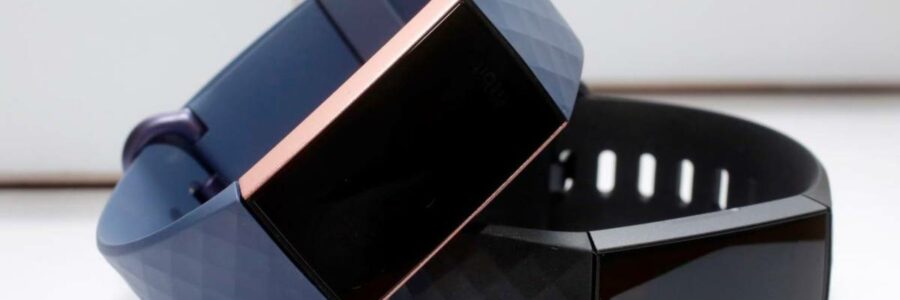
Chris Keall: Is Google fit to buy Fitbit? Should NZ take a tougher stance?
COMMENT
Another Big Tech fight sees Australia on the front-foot and New Zealand on the sidelines.
On January 14 this year, Google ran out of patience with regulators and said it had finally closed its deal to buy Fitbit for US$2.1 billion ($2.73b).
Read More
- NZ gets Apple Watch features that alert for dangerous heart conditions
At issue is how Google can use (or not) fitness, heart-health and sleep data collected by Fitbit fitness bands and smartwatches, plus whether Google will continue to make its Android software available to the makers of other smartwatches.
The global deal had been first announced in November 2019.
Its January 14 consummation was unusual in that US Department of Justice approval was still pending. A DOJ spokesperson told the New York Times on January 15 that “The Antitrust Division’s investigation of Google’s acquisition of Fitbit remains ongoing”.
Australia’s Competition and Consumer Commission said in a statement issued on January 15, “As the transaction completed on 14 January 2021, before the ACCC had finished its investigation, this matter has become an enforcement investigation.”
The Australian watchdog will release its findings on March 25 – setting up, potentially, more court action between the ACCC and Google, or another scenario (after the recent search engine stand-off) where it’s possible a Google product might potentially exit The Lucky Country.
Read More
- Apple’s new privacy push angers Facebook – but called ‘a defining moment’ by NZ Privacy Commissioner
Here, after being asked for comment by the Herald, the Commerce Commission said, in short, that it was not investigating the Google-Fitbit deal. It’s longer answer: “The Commission is in regular contact with overseas agencies and is aware of the recent developments including with the ACCC. We did not receive an application for clearance in New Zealand and have not had any concerns raised with us about the merger in New Zealand … The Commission proactively monitors merger activity – in New Zealand and overseas – to detect mergers that might raise competition issues in New Zealand. If the Commission considers that a transaction may raise competition issues here, it can open an investigation.”
Privacy Commissioner John Edwards had no comment.
Meanwhile, the world has reason to closely watch events across the Tasman.
“Normally Australia by itself can’t do anything to stop a merger overseas, but this merger needs approval from competition regulators around the world, including Australia’s ACCC,” Auckland University Associate Professor Alex Sims says.
The business law expert adds, “While a lot of the focus has been on stopping Google from using the data from Fitbit for advertising purposes, an equally, if not more important factor, is Google using that information for personalised health care. While that may seem a good thing, it could lead to price discrimination and the exploitation of consumers.”
Earlier, competition lawyer Andy Matthews told the Herald that in most territories, including New Zealand, a merger could go ahead without regulatory approval. For example, there was nothing to stop, Sky TV and Vodafone NZ’s operation’s being merged without the Commerce Commission. But a regulator can subsequently take the participants to court and force a deal to be unwound. The business risk of that happening means most companies prefer to seek the ComCom’s approval before they hook up.
Notably, Google has gained conditional approval from the EU for its Fitbit acquisition.
The European Commission said on December 17 that it had okayed the takeover as long as Google agreed to follow certain commitments for the next 10 years – with provision for a rollover.
The central conditions are that Fitbit data from EU residents must be siloed, and not used for targetted ads, and for Google to continue to make its Android software available to makers of other fitness bands and smartwatches.
The EU is a hard taskmaster, and it’s important to note that delays in the US and Australia are more to do with thrashing out terms can be enforced on a practical level, rather than Google objecting to conditions (and in the company said it formalised the Fitbit deal last month simply because an agreed discussion phase of 14-months with the DOJ had expired). It’s like a good framework will be settled on.
But given the importance of the issues involved, and the precedents being set, it’s a pity New Zealand is not having any input into the global debate around the Fitbit deal.
Postscript: The size and shape of the local market
Fitbit has around 28 million active users worldwide.
IDC associate research director, devices Kenneth Liew first the first half of 2020, Australia and New Zealand had close to 400,000 smartwatches and 181,000 fitness bands shipped.
Apple is the market leader in the smartwatch category and Huawei leads the wristband category – though Liew says Fitbit losing its lead in the band category is largely down to its shift toward the smartwatch market, where it sits forth.
Apple dominated the smartwatch market overall during the period, with 47 per cent market share, Liew said.
Source: Read Full Article
/cloudfront-ap-southeast-2.images.arcpublishing.com/nzme/PZ2BAPLP32GHJYYZTWXFT3KNJQ.jpg)